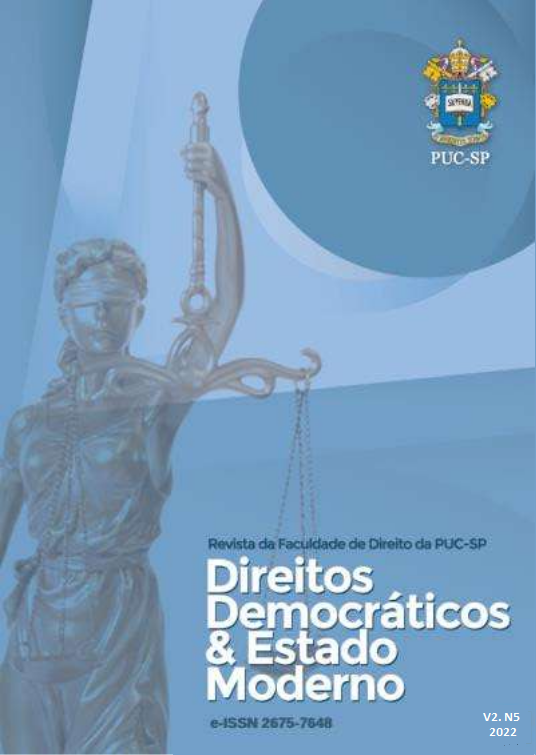Um marciano nas Nações Unidas ou reflexões ingênuas sobre a governança mundial do meio ambiente
DOI:
https://doi.org/10.23925/ddem.v.2.n.5.58301Palavras-chave:
Governança Ambiental Global, Acordo de Paris, Pacto Global pelo Meio Ambiente, Teoria da Autolimitação do Estado, Cooperação Interestatal, Democracia Internacional, Justiça InternaResumo
E se um marciano viesse observar a Terra e seus habitantes? Não apenas um marciano típico, mas um marciano jurista. Ele veio pela primeira vez há 50 anos, em 1972 para a Conferência de Estocolmo e voltou mais uma vez em nosso tempo. Diante da rápida degradação da Terra, ele se comprometeu a se encontrar com o Secretário-Geral das Nações Unidas. Eles discutiram primeiro o duplo fracasso da governança ambiental global: é observado através da fatalidade da elaboração de novas normas ambiciosas, bem como da implementação de normas existentes. Juntos, eles identificaram várias raízes dessas dificuldades. Eles giravam principalmente em torno da autolimitação dos Estados e sua natureza egoísta acarretada por sua soberania sobre os recursos naturais. Finalmente, linhas de pensamento ingênuas para ajudar a configurar um sistema mais eficiente e justo foram colocadas na mesa. Implicam o retorno aos valores no cenário internacional e o reconhecimento de um interesse público global. Ao sair, o marciano concluiu com uma pergunta sobre a arte da reforma: como tais mudanças poderiam ser aceitas pelos Estados? A história humana mostrou que somente a ocorrência de desastres pode provocar questionamentos profundos. Nosso marciano temia que, para sua próxima vez na Terra, ele pudesse ter pouco a ver.
Referências
ª Visão Global da Biodiversidade (GBO-5), disponível on-line no site da Convenção sobre Diversidade Biológica: < https://www.cbd.int/gbo/gbo5/publication/gbo-5-fr.pdf>.
P. Sands, Principles of International Environmental Law. 2ª Ed., Cambridge University Press, p. 187: « It is a trite observation that environmental problems, although they closely affect municipal laws, are essentially international; and that the main structure of control can therefore be no other than that of international law ».
Relatório do Secretário Geral das Nações Unidas de 13 de dezembro de 2018, “Gaps in international environmental law and texts: towards a global environmental pact”, relatório A/73/419, disponível online no site das Nações Unidas. As mesmas observações foram feitas em 2015 no relatório de um grupo de reflexão francês, o Club des Juristes, sobre a necessidade de “reforçar a eficácia do direito ambiental internacional” (relatório da Comissão de Meio Ambiente do Club des Juristes “Reinforcing the effectiveness of international environmental law: duties of States, rights of individuals”, novembro de 2015, disponível on-line no site do Club des Juristes).
Downloads
Publicado
Como Citar
Edição
Seção
Licença
Copyright (c) 2022 Direitos Democráticos & Estado Moderno

Este trabalho está licenciado sob uma licença Creative Commons Attribution 4.0 International License.

Este obra está licenciada com uma Licença Creative Commons Atribuição 4.0 Internacional.
Revista DD&EM - ISSN 2675-7648
















